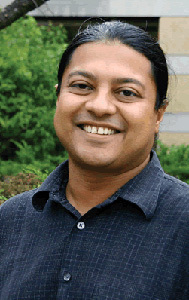
By flip-flopping its position on which groups can provide humanitarian aid to the thousands of starving Somalians, and forbidding supplies from foreign agencies not currently working in its strongholds, the al-Qaida-linked militant group al-Shabab is “playing an interesting game,” says University of Notre Dame economic anthropologist Rahul Oka, who currently is in Kenya at the Kakuma Refugee Camp conducting fieldwork on trade and the distribution of relief supplies.
“My analysis from the ground suggests that al-Shabaab is indeed in a tight corner. Their claim to power, their legitimacy can only be sustained by the gun as long as they can ensure that the peoples’ basic needs are fulfilled. As the stories of the drought become narratives of famine, as the architects of the relief agency withdrawal, al-Shabab stands to be blamed for the ongoing misery, especially if they cannot feed the populace. Their legitimacy is uncertain,” Oka says, “as is their financial situation, even as their funding is declining, based on recent reports.”
According to Oka, al-Shabab has blocked migrating groups from entering Kenya or Ethiopia with threats and with violence.
“Al-Shabab is setting up the possibility to ‘legitimately’ confiscate ‘banned’ relief supplies and turn around to distribute them to the populace, denying credit to the relief agencies,” says Oka, who specializes in the ways humanitarian networks operate in war zones, such as the Sudan and northern Kenya.
Media advisory: Oka’s comments may be used in whole or in part. He is available for interviews and can be reached by phone at 0704153131 (within Kenya); 011 254 704153131 (international) or roka@nd.edu.
Contact: Susan Guibert, Office of Public Relations, 574-631-2867 (office); 574-286-4839 (cell) or sguibert@nd.edu